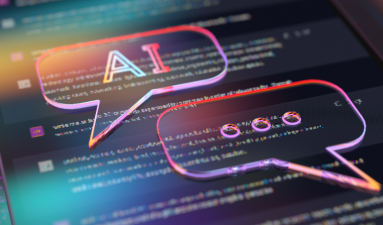Enter a question you want, and generative AI can retrieve and analyze the text, images, and even videos you want from massive amounts of data according to your needs. While it is convenient and fast, its potential risk of personal information leakage also raises concerns.

How to build a strong line of defense for personal information security in the era of generative AI?
In the wave of modern technology, two concepts are increasingly becoming the focus:
Big data and artificial intelligence (AI), which are not only the driving force of technological progress, but also constantly shaping our daily lives. Big data is the nourishment of artificial intelligence. We generate massive amounts of data every day, from likes and comments on social media to online shopping behaviors, to various sensor information collected by smart devices. These data, when effectively collected and analyzed, can reveal patterns of human behavior and social operations. AI systems can extract useful information from these complex data, learn patterns, predict trends, and even make decisions. For example, by analyzing interaction patterns on social media, AI can infer popular trends, or personalize product recommendations by analyzing users' online shopping behaviors. Artificial intelligence (AI) has been integrated into every aspect of our daily lives. While analyzing us, AI also brings us many conveniences and benefits. Especially in the smartphones and social media we use, the impact of AI is everywhere, but it is often not easy to detect.

How to protect your privacy
Choose a formal platform and stay away from the risk of copycats
When using AI applications, you should give priority to services provided by formal platforms and avoid downloading applications through unofficial channels such as social media, strange emails, and unsafe links. For unofficial applications that claim to provide "free scan code trials" or "limited time internal testing", you should be vigilant and pay attention to identification to ensure data security.Grant permissions carefully to prevent information leakage
When installing AI applications, you should carefully review their permission requests and carefully grant access to data involving privacy, such as address books, location information, photo albums, and microphones. Regularly check the permission status of authorized applications, revoke unnecessary permissions in a timely manner, and prevent sensitive information leakage.Adhere to the minimum principle and build a solid confidentiality red line
The principle of "no Internet access for confidential information and no Internet access for confidential information" must be strictly observed, and it is strictly forbidden to connect to the Internet and use AI applications to handle state secrets. For application scenarios where AI is needed to handle confidential and sensitive matters, data transmission should be strictly controlled, physical isolation should be implemented, and sensitive data information provided should be minimized.Clean up traces regularly to eliminate residual risks
The cross-platform data synchronization function of browsers and AI applications should be turned off. When using AI applications, search records, cache files, and AI historical conversation data should be cleaned up regularly. For devices that have handled personal sensitive information, it is recommended to use professional data erasure tools to completely remove residual data to avoid the risk of information leakage.
